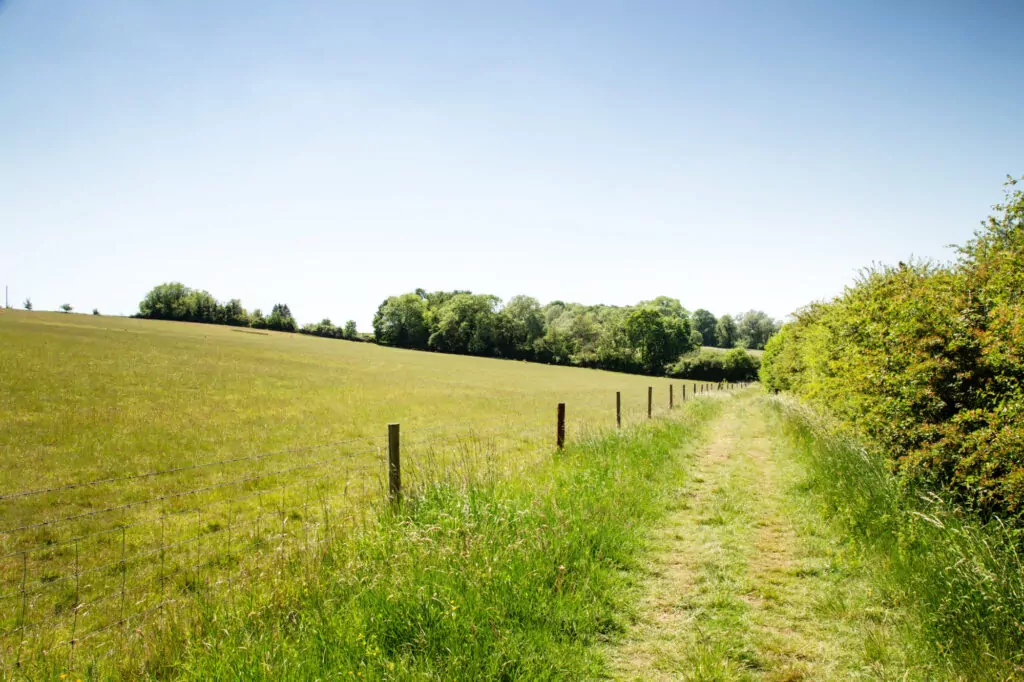
DKH Retail and Others v City Football Group: the growing role and importance of Alternative Dispute Resolution

By Danielle Spalding, Abigail Wilson
11 Apr 2025 | 5 minute read
The recent judgment in DKH Retail and Others v City Football Group Ltd [2024] EWHC 3231 (Ch) emphasises the court’s growing role in compelling parties to mediate disputes and reinforces the importance of Alternative Dispute Resolution (ADR) in resolving conflicts - even when one party is unwilling.
The decision follows the landmark judgment in Churchill v Merthyr Tydfil County Borough Council [2023] EWCA Civ 1416, in which the Court of Appeal granted courts the explicit authority to compel reluctant parties to engage in ADR, including mediation. As a result, the Civil Procedure Rules (CPR) were amended to reflect this change, making mediation a much more central part of the dispute resolution process.
For those in the rural sector - whether landowners, farmers or agricultural businesses - this shift marks a pivotal moment in how disputes are handled in court and how legal challenges should be addressed. The implications for those involved in land, property and agricultural disputes are clear: mediation is a powerful tool that should be used to resolve conflicts.
Mediation: A powerful alternative to litigation
Historically, the decision to mediate was voluntary and optional, but the Churchill case shifted the balance, by confirming that courts now have the power to order parties to participate in ADR. This change has been incorporated into the CPR, signalling a broader recognition of the advantages that ADR and mediation offers, and the courts are increasingly recognising that mediation is often the best solution.
The DKH Retail case demonstrates how these new powers are being used in practice. In this case, the court exercised its authority under the amended CPR to compel the parties to engage in mediation. While one party was initially resistant to mediation, the court ordered it anyway, demonstrating its firm stance on ensuring that parties explore ADR before proceeding to costly and time-consuming litigation.
This development is particularly significant for rural clients, as it highlights how the court is taking an active role in steering disputes towards mediation, even when one party is opposed and might prefer to continue with litigation. The ability of the court to mandate mediation is a powerful tool to avoid protracted legal battles and find quicker, more amicable solutions - important in any legal dispute but especially so in rural and agricultural matters where personal relationships and long-term interests are often at stake.
Why this matters for rural and agricultural clients
Disputes in rural settings often go beyond legal rights and involve long-standing relationships with family members, neighbours, landlords, tenants, and even local communities. Whether it’s a disagreement over a family farming business, land boundaries, farming contracts, or rights of way, these issues often involve highly personal and complex considerations that can’t always be resolved through a simple legal judgment. In these cases, mediation offers a far more tailored and practical approach.
Consider a scenario where the landlord and tenant of a farm are in dispute. While they may both have valid legal positions, a court trial may not be the best way to preserve their business relationships or resolve underlying tensions. In such cases, ADR can offer many advantages such as:
- Preserving relationships: Mediation fosters open communication, allowing parties to address their concerns without escalating tensions. This collaborative approach helps preserve these important relationships, which could be jeopardised in adversarial court proceedings.
- Cost-effectiveness: Litigation can be expensive, particularly when it involves long-running disputes over land. Mediation is generally quicker and therefore less costly and can avoid the burden of court fees, extensive legal costs, and the expenses associated with prolonged litigation.
- Speed and efficiency: Many rural disputes involve time sensitive matters -such as crop cycles, farming agreements, or land management decisions. Mediation can typically resolve disputes in months rather than the years it could take for a case to go through the court system, allowing clients to get back to focus on running their business and managing their land.
- Tailored solutions: Unlike a rigid court ruling, mediation allows parties to negotiate creative solutions tailored to their specific needs. For example, land-use issues or farming contracts can be resolved in a way that suits both parties, taking into account the nuances of their circumstances. This flexibility can result in solutions that are far more practical and effective for rural clients than a one-size-fits-all court judgment.
- Greater control: In court, the outcome is ultimately decided by the judge. In mediation, however, the parties have more control over the resolution, as they work together to find a mutually acceptable solution. This can be particularly important in rural disputes where clients may have long-term stakes in the outcome and want to maintain control over the decisions affecting their land, business, or relationships.
- Confidentiality: Mediation is typically a private process. For rural clients who may wish to keep their disputes out of the public eye - especially when dealing with sensitive matters like family relationships, reputations, or community dynamics - mediation offers a discreet way to resolve issues.
A more collaborative future for rural disputes
The judgment in DKH Retail signals a broader trend in the courts towards more cooperative and efficient dispute resolution. For rural and agricultural clients, this means greater access to mediation as a tool to resolve disputes without the financial and emotional strain of litigation.
As this approach continues to gain traction, rural businesses and landowners should be prepared for the possibility that, even in cases where they’d prefer to avoid mediation, the courts might encourage - or require - it. But in many cases, this shift is a positive one, offering a chance to resolve disputes in a way that is quicker, cheaper, and more in tune with the collaborative spirit that is so often needed in rural communities.
So, next time a legal dispute crops up, consider mediation as a real option and remember, with the courts on board, it’s not just an option anymore - it’s a path toward resolution that may well work in your favour. It is also important to understand that mediation should not simply be a tick box exercise. The most successful mediations are where both parties are committed to the process and well prepared for the day. That means preparation is key and may involve seeking valuation or expert evidence in advance of a mediation so that all parties have the best possible chance of resolution on the day or in the weeks after.
Partner and Head of the Farms, Estates and Rural Land team, Edward Venmore, is a qualified mediator with a deep understanding of rural issues and the challenges that landowners, farmers, and agricultural businesses face. His expertise in mediation makes him an ideal choice for resolving disputes in rural settings. If you're looking for a mediator who understands the unique needs of rural clients, don't hesitate to reach out to Edward for guidance and support in navigating your dispute.
Listen to our Experts in the Field podcast for more insights on important issues for rural businesses.















